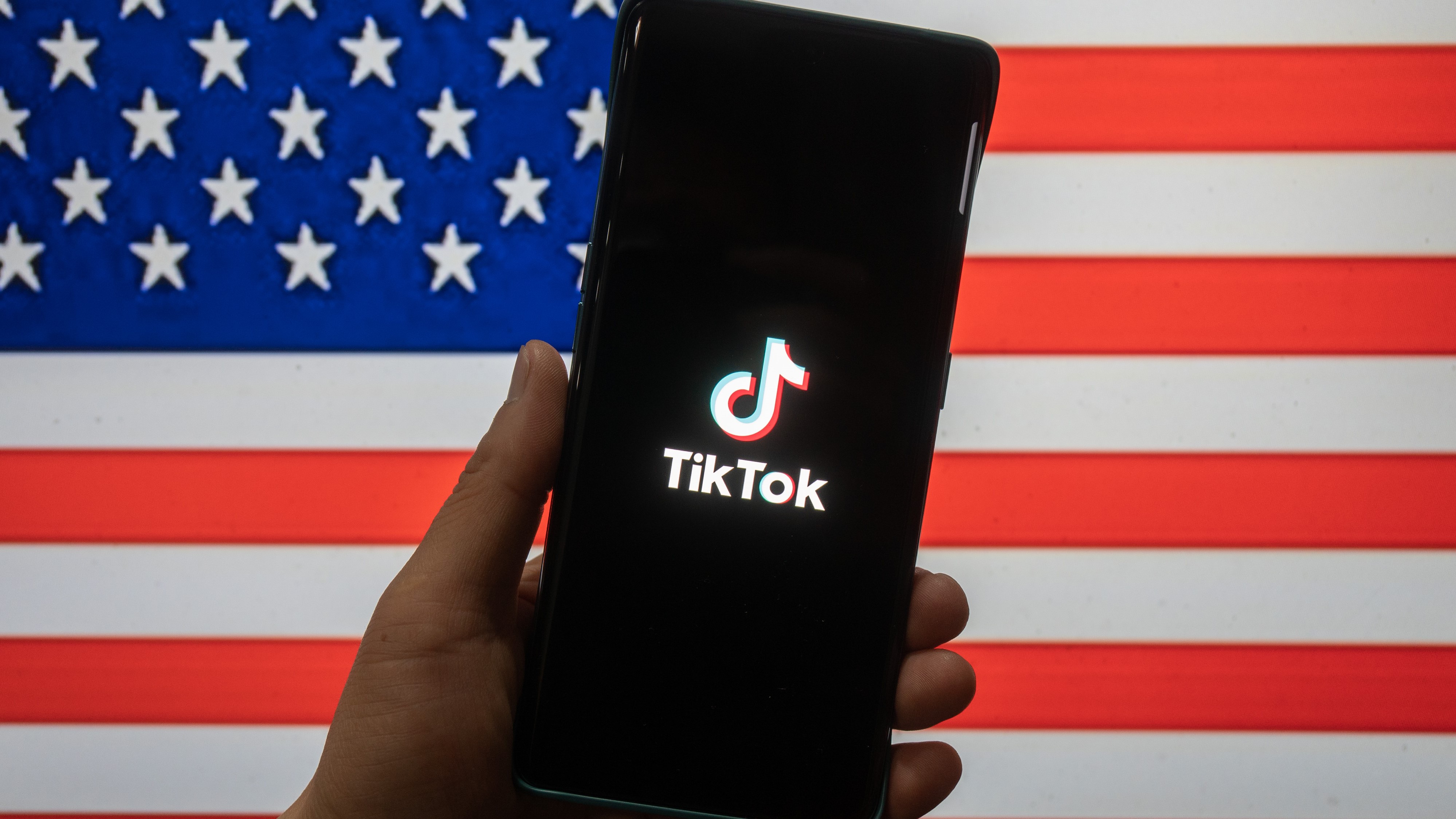Best VPN for streaming Netflix 2025: Watch from wherever you are
VPNs aren’t just useful for keeping your online activities safe and private, they’re also a great way to bypass restrictions on streaming content in other countries. The top VPN providers continue to stay one step ahead of streaming services in a never-ending cat-and-mouse game, ensuring that you always have access to your favorite content no matter where you are. I’ve thoroughly tested the top VPNs on the market to see how they fare at unblocking the top streaming sites and curated a list of the very best below. Why you should trust me: Here at PCWorld we’ve been testing computer hardware, software, and services since the 1980s. For my part, I’m continually testing all of the major VPNs on the market and many lesser-known services in order to curate a list of the very best VPNs across a variety of categories. Below you’ll find my favorite VPNs, and below those, helpful advice about what to look for when choosing a VPN on your own. If you’re looking to use your VPN for more than streaming, be sure to check out our comprehensive roundup of the best VPNs in all categories, as well. NordVPN – Best VPN overall for Netflix Pros Loaded with tons of VPN configuration options Outstanding speeds Multiple independent no-logs audits Included antivirus and password manager Cons Expensive Why I like NordVPN For my money, the best option for streaming Netflix is NordVPN. From the very beginning, it has been challenging the Netflix VPN ban. It’s also had a goal of making all of its servers work with the streaming service. As of our latest review, Netflix works without a hitch on all servers tested. No matter which Netflix catalog you want, NordVPN promises to deliver it. NordVPN has more than 6,000 servers and offers locations in more than 110 countries around the world. It also allows you to choose your specific server so that you can switch around if you need to if Netflix’s ban hammer ever comes down. In addition to top-notch speeds and Netflix compatibility, NordVPN offers multi-hop connections and Meshnet. NordVPN also uses the WireGuard protocol by default, though it has made some modifications to make WireGuard friendlier and more private for commercial VPN services and thus calls its protocol NordLynx. For both download and upload speeds, NordVPN is the undisputed fastest VPN overall, and with the company’s success rate of averting bans, it should have no trouble streaming Netflix anywhere in the world. Who should buy NordVPN Simply put, everyone looking to use a VPN with streaming services such as Netflix can, and probably should, use NordVPN — it’s really that good for streaming. Between its consistently good speeds and history of successful unblocking, I think NordVPN can’t be beat. ExpressVPN – Best VPN runner-up for Netflix Pros Excellent speeds Easy-to-use interface Unblocks all streaming services Great security and privacy practices Cons More expensive than many competitors Light on some features for a top VPN Why I like ExpressVPN If NordVPN isn’t your style, my top-pick VPN overall, ExpressVPN, is also an excellent choice. ExpressVPN offers more than 3,000 servers in 105 countries. It also promises that Netflix will work with every server it has, and ExpressVPN offers good speeds. Express is on the pricier side at nearly $100 per year, compared to $60 for Nord. But the app is easy to use, the speeds are excellent, and it offers some nice extras such as a private DNS service that lets you set up an Apple TV or console for watching U.S. streaming services overseas. Who should buy ExpressVPN ExpressVPN is right up there with NordVPN as my recommendation for most people. Its great server spread means you’ll likely find a country to connect to no matter where you want to spoof your location. Also, as PCWorld’s top VPN overall, ExpressVPN will serve you just as well with non-streaming activities as it will unblocking Netflix. Read our full ExpressVPN review CyberGhost VPN – Best for server locations

VPNs aren’t just useful for keeping your online activities safe and private, they’re also a great way to bypass restrictions on streaming content in other countries. The top VPN providers continue to stay one step ahead of streaming services in a never-ending cat-and-mouse game, ensuring that you always have access to your favorite content no matter where you are. I’ve thoroughly tested the top VPNs on the market to see how they fare at unblocking the top streaming sites and curated a list of the very best below.
Why you should trust me: Here at PCWorld we’ve been testing computer hardware, software, and services since the 1980s. For my part, I’m continually testing all of the major VPNs on the market and many lesser-known services in order to curate a list of the very best VPNs across a variety of categories. Below you’ll find my favorite VPNs, and below those, helpful advice about what to look for when choosing a VPN on your own.
If you’re looking to use your VPN for more than streaming, be sure to check out our comprehensive roundup of the best VPNs in all categories, as well.
NordVPN – Best VPN overall for Netflix
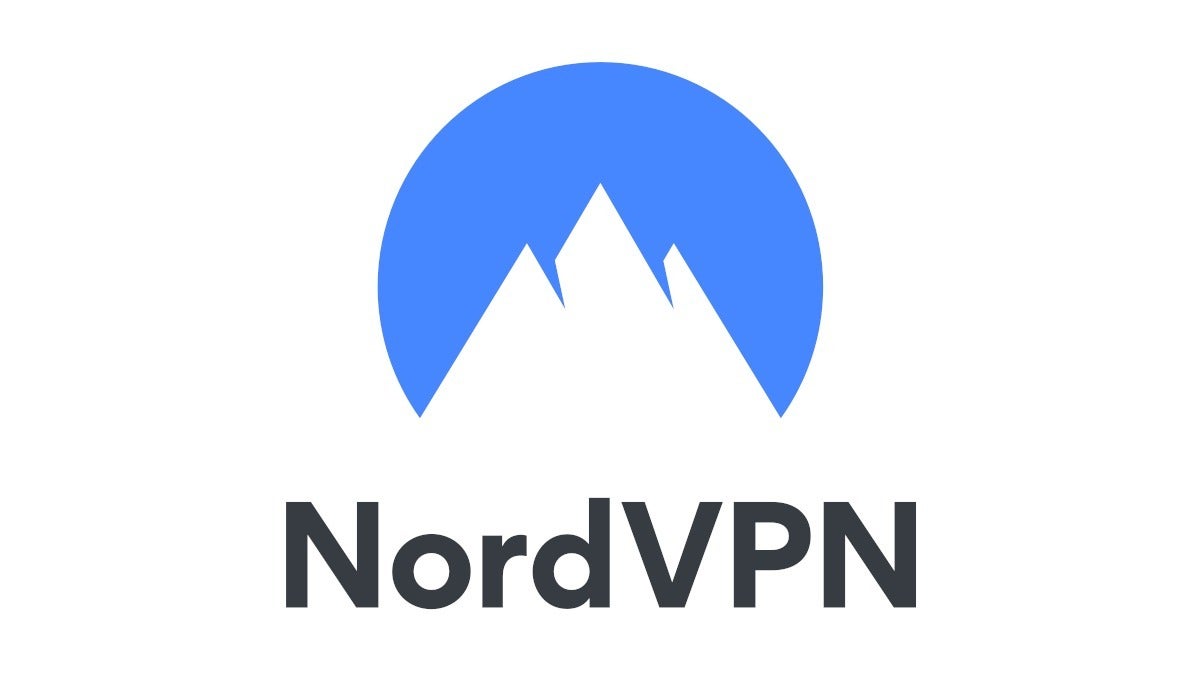
Pros
- Loaded with tons of VPN configuration options
- Outstanding speeds
- Multiple independent no-logs audits
- Included antivirus and password manager
Cons
- Expensive
Why I like NordVPN
For my money, the best option for streaming Netflix is NordVPN. From the very beginning, it has been challenging the Netflix VPN ban. It’s also had a goal of making all of its servers work with the streaming service. As of our latest review, Netflix works without a hitch on all servers tested. No matter which Netflix catalog you want, NordVPN promises to deliver it.
NordVPN has more than 6,000 servers and offers locations in more than 110 countries around the world. It also allows you to choose your specific server so that you can switch around if you need to if Netflix’s ban hammer ever comes down.
In addition to top-notch speeds and Netflix compatibility, NordVPN offers multi-hop connections and Meshnet. NordVPN also uses the WireGuard protocol by default, though it has made some modifications to make WireGuard friendlier and more private for commercial VPN services and thus calls its protocol NordLynx.
For both download and upload speeds, NordVPN is the undisputed fastest VPN overall, and with the company’s success rate of averting bans, it should have no trouble streaming Netflix anywhere in the world.
Who should buy NordVPN
Simply put, everyone looking to use a VPN with streaming services such as Netflix can, and probably should, use NordVPN — it’s really that good for streaming. Between its consistently good speeds and history of successful unblocking, I think NordVPN can’t be beat.
ExpressVPN – Best VPN runner-up for Netflix

Pros
- Excellent speeds
- Easy-to-use interface
- Unblocks all streaming services
- Great security and privacy practices
Cons
- More expensive than many competitors
- Light on some features for a top VPN
Why I like ExpressVPN
If NordVPN isn’t your style, my top-pick VPN overall, ExpressVPN, is also an excellent choice. ExpressVPN offers more than 3,000 servers in 105 countries. It also promises that Netflix will work with every server it has, and ExpressVPN offers good speeds. Express is on the pricier side at nearly $100 per year, compared to $60 for Nord. But the app is easy to use, the speeds are excellent, and it offers some nice extras such as a private DNS service that lets you set up an Apple TV or console for watching U.S. streaming services overseas.
Who should buy ExpressVPN
ExpressVPN is right up there with NordVPN as my recommendation for most people. Its great server spread means you’ll likely find a country to connect to no matter where you want to spoof your location. Also, as PCWorld’s top VPN overall, ExpressVPN will serve you just as well with non-streaming activities as it will unblocking Netflix.
CyberGhost VPN – Best for server locations
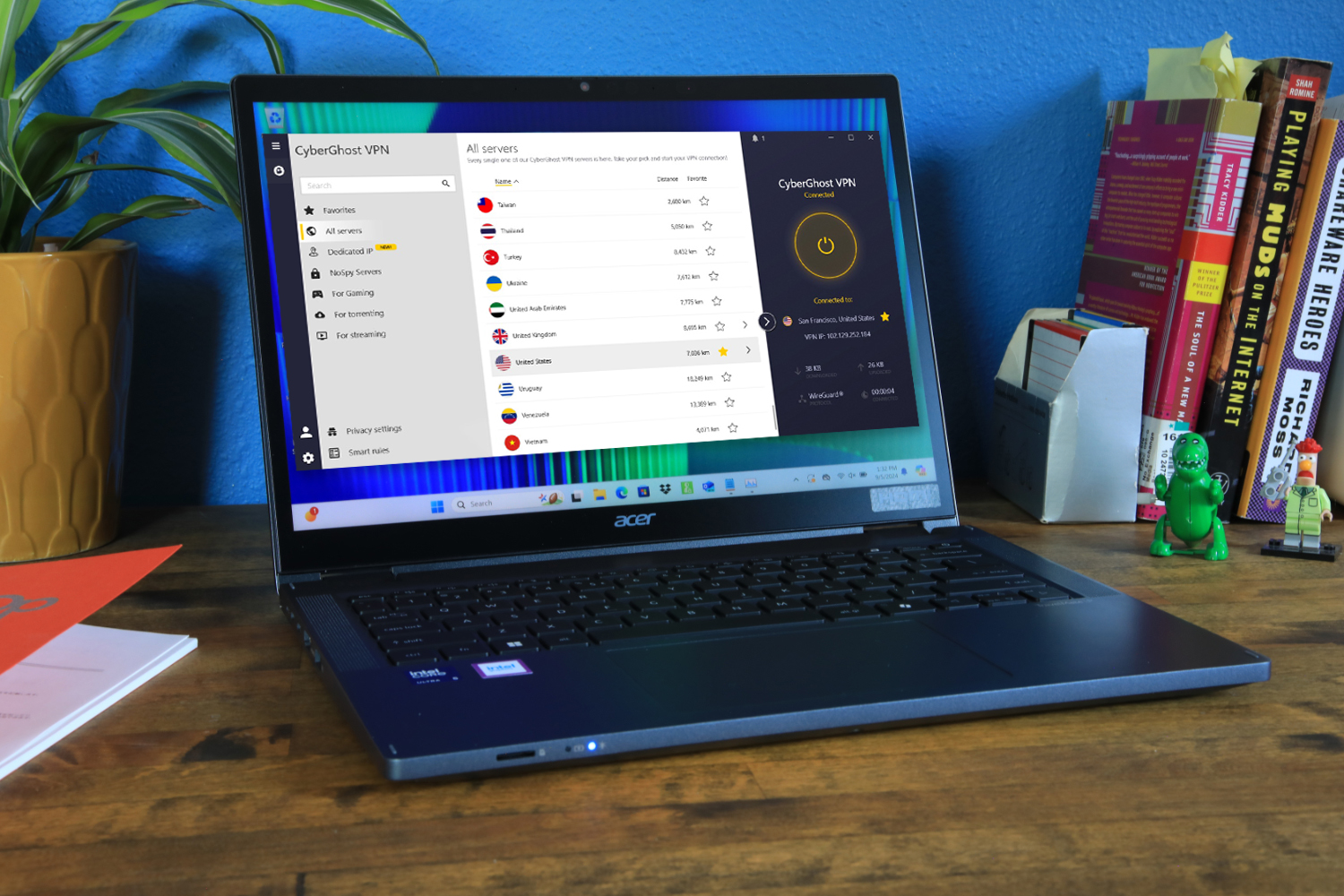
Pros
- Independently verified no-log policy
- Seriously impressive server spread
- Generous 45-day money-back guarantee
Cons
- Server speeds can be hit-or-miss
- Lacks some extra security features offered by competitors
Why I like CyberGhost VPN
When using a VPN to stream Netflix or another service, having a large pool of servers to choose from is a huge benefit. This is because streaming services and VPN providers are in a constant cat-and-mouse game for access to content. And if you want variety and options in the server locations from your VPN, then CyberGhost VPN can’t be beat.
It offers a staggering 9,000+ servers for users to connect to — more than twice as many as ExpressVPN. These servers aren’t all concentrated in the U.S. or Europe either. They boast an equally impressive server spread, with 120 countries across the world. It even provides optimized servers to users for various needs such as gaming, streaming, and torrenting. I did find that some of the servers were faster than others, with servers located in Europe having excellent speeds while servers in Asia not so much. But all-in-all, in my testing I found that the speeds were good enough to stream on any and all of CyberGhost’s servers.
Additionally, CyberGhost has an intuitive and easy-to-use Windows app with good functionality. It lacks some of the power-user features that other VPNs on this list provide, but that shouldn’t be a deal breaker if you’re just looking to use the service to stream. Ultimately, CyberGhost is a straightforward and powerful VPN service with an impressive number of server locations.
Who should buy CyberGhost VPN
If you’re looking for the greatest server spread with the most server locations to choose from then CyberGhost VPN is the ticket. For those who travel a lot or just need access to a wide-ranging server network all over the world, CyberGhost is more than worth your time and money.
Surfshark – Best for access with multiple devices
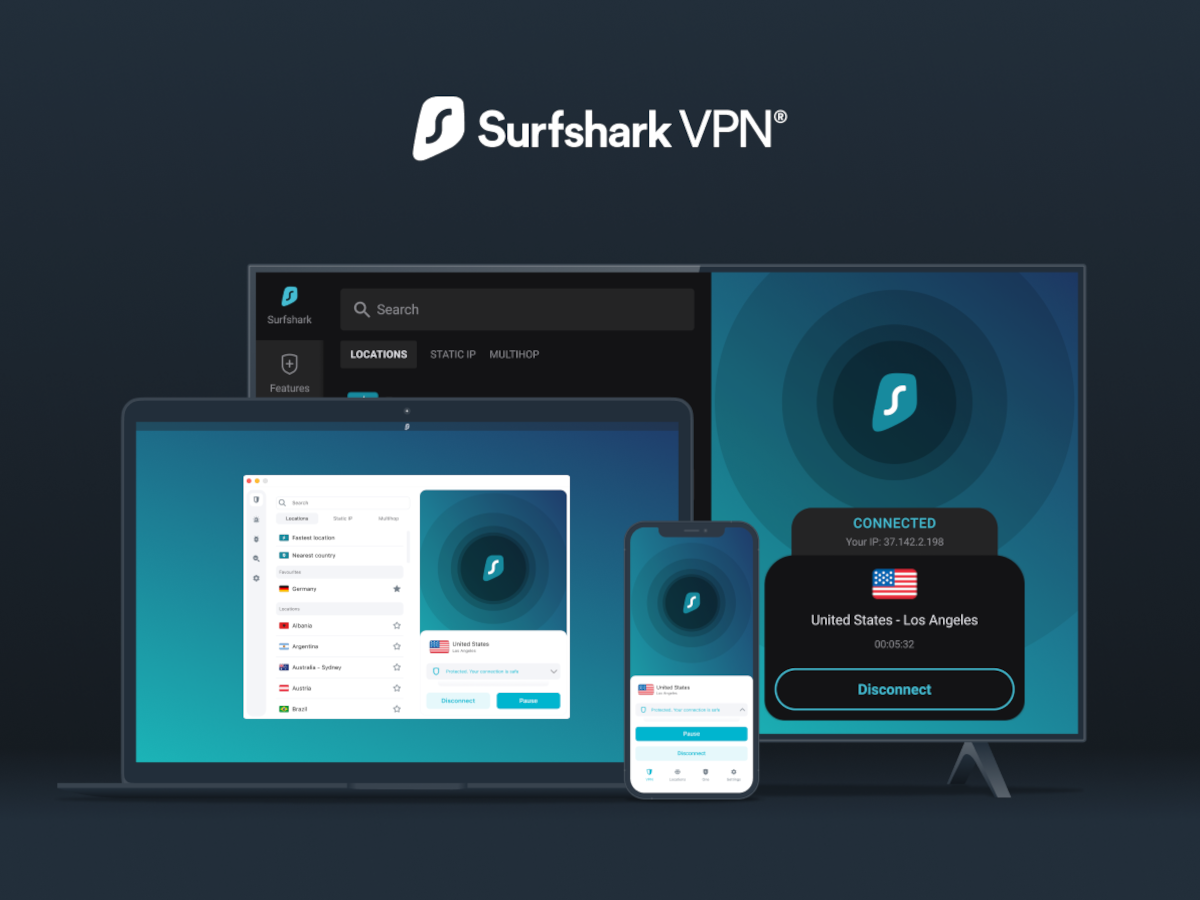
Pros
- Unlimited simultaneous device connections
- Works well with Netflix
- Built-in extras such as ad tracker and malware blocking
- Low price on long-term plans
Cons
- Indicators for ping or server load are not readily available
- Based in the Netherlands and subject to government data sharing requests
Why I like Surfshark VPN
Surfshark is another VPN that hits my top 10 for speeds, reaching 61 percent of the base speed in my latest tests. This makes Surfshark plenty fast enough for Netflix streaming. My testing also showed that Surfshark was able to not only unblock Netflix, but also any other major streaming service I tried — Amazon Prime, Max, Hulu, and more.
It also comes with ad- and malware-blocking features, double-hop connections, and, surprisingly, it offers unlimited simultaneous device connections as opposed to the usual five-device limit with most VPNs. The Surfshark app for Windows is also easy to use and if you opt for a two-year subscription, the price is incredibly affordable as well.
Who should buy Surfshark VPN
Since Surfshark offers unlimited simultaneous device connections, it’s ideal for users who want to securely access streaming platforms from multiple devices at the same time. This makes it a great option for families who frequently have all of their members watching shows on their own devices, or individuals who don’t mind sharing their VPN with friends or colleagues.
ProtonVPN – Best for watching Netflix on a Mac
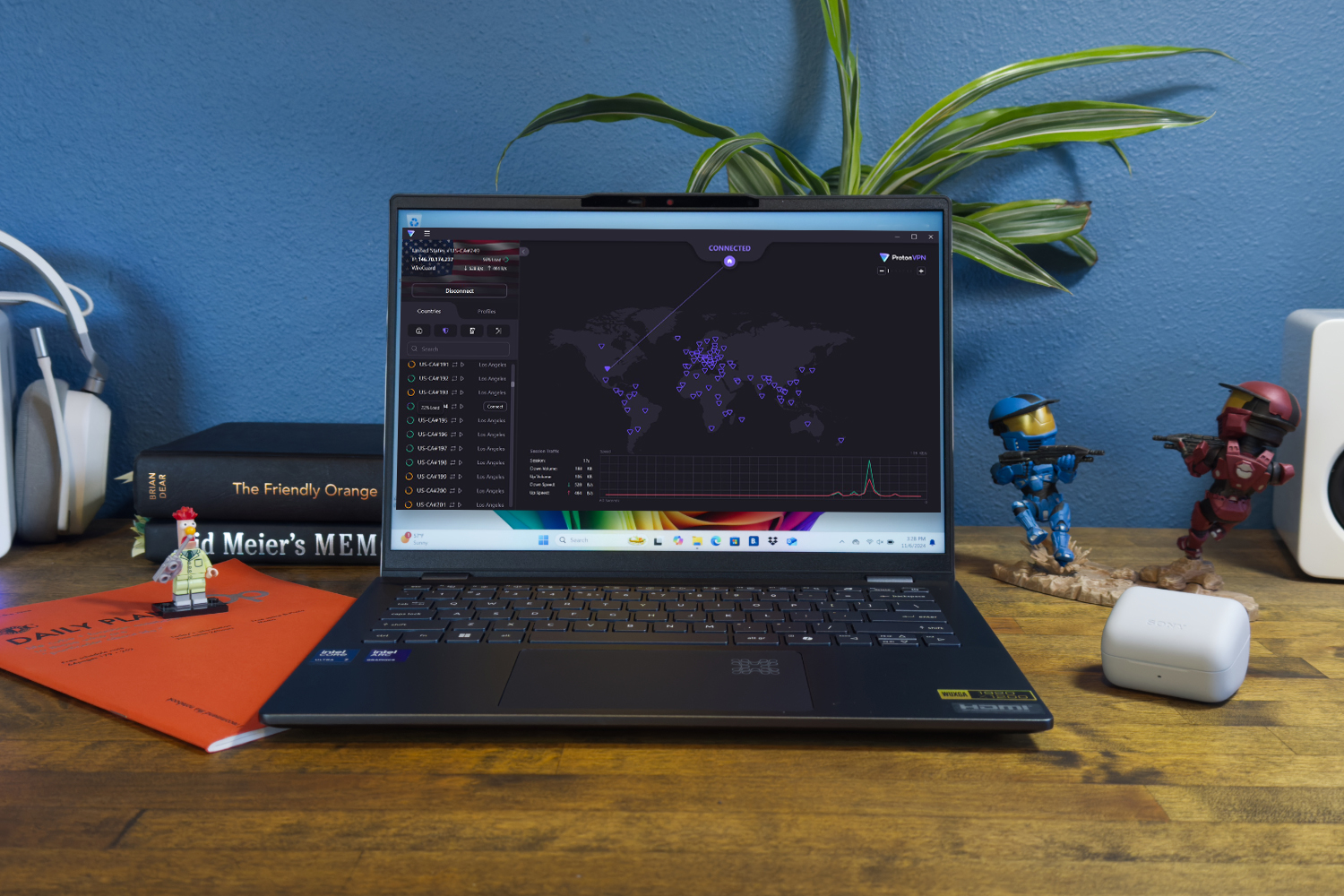
Pros
- Excellent free plan
- Great privacy tools
- Reliable and transparent no-logs policy
Cons
- Expensive
Why I like ProtonVPN
Another good recommendation is ProtonVPN, which is available at a similar price to ExpressVPN. Unlike NordVPN, however, Netflix doesn’t work on every single Netflix server. It works on a lot of the more than 4,800 servers, but not every single one. The one issue with Proton is that it can have trouble from time to time, where a stream will suddenly stop, especially if you’re watching while you work on the same PC. While these issues popped up on my Windows machine, I did not have the same issue on a Mac, where it ran smoothly the entire time.
Who should buy ProtonVPN
While we at PCWorld typically use Windows PCs, we understand that Mac users need VPN love as well. So if you’re rocking a macOS machine I think that Proton VPN is a great option. The VPN has one of the better macOS apps I’ve encountered and combined with its strong unblocking ability, this makes ProtonVPN a solid pick for Apple users looking to access streaming services.
Other VPN reviews and features
- Hide.me VPN: Lots of customizable features and affordable long-term plans makes this a good flexible VPN option.
- TunnelBear VPN: This charming VPN is very user-friendly and it can access most U.S. streaming services, but inconsistent speeds hold it back from making this list.
- PrivadoVPN: A Swiss-based VPN that comes with decent speeds, good streaming service compatibility, and an excellent free version.
- Should you use a VPN browser extension? What you gain, what you give up
- How to test your VPN speed
- VPNs and the law: How often does law enforcement actually request VPN logs?
Why does Netflix block VPNs?
Netflix’s big expansion into pretty much every country on earth back in 2016 meant it had to get tough on VPNs. While Netflix produces a lot of its own content that it can make available worldwide, the company also licenses a ton of content from traditional entertainment studios.
These third parties are still working on a system of global territory licensing. Under this system, Netflix gets a package of movies and TV shows from these companies that it can show in the U.S., but that aren’t licensed to be shown by Netflix in, say, Europe. To keep those companies and their other international licensees happy, Netflix must enforce a block on VPNs to prevent people from getting content made available to Netflix subscribers in the UK, but not the U.S.
“We are making progress in licensing content across the world,” Netflix said in a 2016 blog post. “But we have a ways to go before we can offer people the same films and TV series everywhere.”
Netflix isn’t the only company that has to enforce these restrictions. Amazon Prime Video, Hulu, and others do it too. However, Netflix along with Hulu are easily the most active and effective at it.
What to look for in a VPN to access Netflix streaming
First, most people should not make speed the top consideration. The minimum recommended bandwidth for a 1080p Netflix stream is 5 megabits per second (Mbps). If you’re streaming in 4K it’s 15Mbps. Depending on your home internet speed, that should be doable with nearly all the top VPNs.
Instead, the first consideration should be the basic promise of Netflix compatibility from a reputable company. That’s the rub. Any old VPN can promise Netflix compatibility, but if there aren’t a lot of reviews about the service it may not be the real deal. Stick to well-known VPN services if you can.
Next, you need to consider how many servers are available for the service — especially the number in your target country. If you want Netflix Australia and the VPN only has two Australian servers, that could be a problem. Most of the popular VPN services list their server networks online so you can see how many servers are in each country.
Finally, make sure the VPN’s desktop app (and don’t forget about mobile) allows you to choose specific servers. Since this is a cat-and-mouse game with the streamers, you need a VPN with a number of servers in your desired Netflix country. That way if one server has been discovered by Netflix, it’s possible the others are still working. The fix for this then is easy — just switch servers.
How I tested
I judge VPNs on a variety of criteria including server network, connection speeds, privacy protections, ease-of-use, additional features, and cost. For a more detailed guide on how I test, check out PCWorld’s comprehensive guide on how we test VPN services.
Speed tests are kept as simple as possible. I average the connections between different global locations for any given VPN and then compare them to a baseline internet speed to get a good picture of the overall connection speeds. I thoroughly research and analyze the privacy policies and histories of each VPN and note any outstanding discrepancies or data collection issues.
In regards to unblocking capabilities, I connect to multiple servers around the world with each VPN and try to access content on all major streaming services such as Netflix, Amazon Prime, HBO Max, Hulu, Disney Plus, and more.
FAQ
Can you use a VPN to watch Netflix?
Yes! If you’re located in a country where particular Netflix content isn’t available, you can use a VPN server located in a different country to access that content. While certain streaming services try to prevent VPN connections, you can usually find a server that isn’t blocked. Good VPN companies offer thousands of servers in which to connect to from all over the world. If your intended use for a VPN is to watch a streaming service such as Netflix, connection speeds, a large server network size, and unblocking capability will be the most important factors to look out for.
What is a VPN?
A VPN (Virtual private network) encrypts your internet traffic and disguises your identity while browsing the internet. When used for streaming Netflix, a VPN will reroute your traffic from your location outside the U.S. to their own server within the country masking your true location and allowing you to bypass Netflix’s region locks.
Additionally, VPNs anonymize your internet traffic and keep your ISP from potentially snooping on your browsing.
Are VPNs legal?
Yes! In most countries, including the United States, using a VPN is legal. Some websites such as Netflix might try to block VPN connections due to their own personal restrictions, but they are still perfectly fine to use. Please note, while using a VPN is legal, some of the activities done while using a VPN might be illegal. Activities such as downloading pirated copyrighted content or accessing dark web markets are both illegal with and without a VPN.
Will a VPN affect my internet speeds?
In short, yes, a VPN can have an effect on your internet speeds. But nowadays it’s the exception rather than the norm.
While connected to a VPN, your traffic is rerouted through the VPN provider’s own servers. Depending on where these servers are located, it can add extra distance for your traffic to travel to and from, slowing your speeds down a bit. Also, VPNs encrypt your data which can lead to slower download and upload speeds due to the time it takes to encrypt and decrypt your data. This can have a more significant impact on speeds and it can affect everything from page load times to video buffering speeds. Thankfully, modern VPN providers have taken advantage of advances in encryption technology and server optimization to drastically reduce these impacts.
Check out our article on how to test your VPN speed for more info on how you can personally determine any potential slowdown on your home internet.
Do VPNs track my browsing or store my data?
This is entirely up to the VPN provider you choose to use. There have been instances in the past of VPN providers collecting data on their users. However, these were mainly free VPN services with no explicit “no-logging” policies.
When searching for a VPN, be careful to check the company’s website for a “no-logging” policy, third-party trust verification, and trustworthy user reviews. Thankfully, most of the major paid VPNs have clearly stated “no-logging” policies, so it’s typically best to stick with one of them if you have concerns.
What's Your Reaction?






















